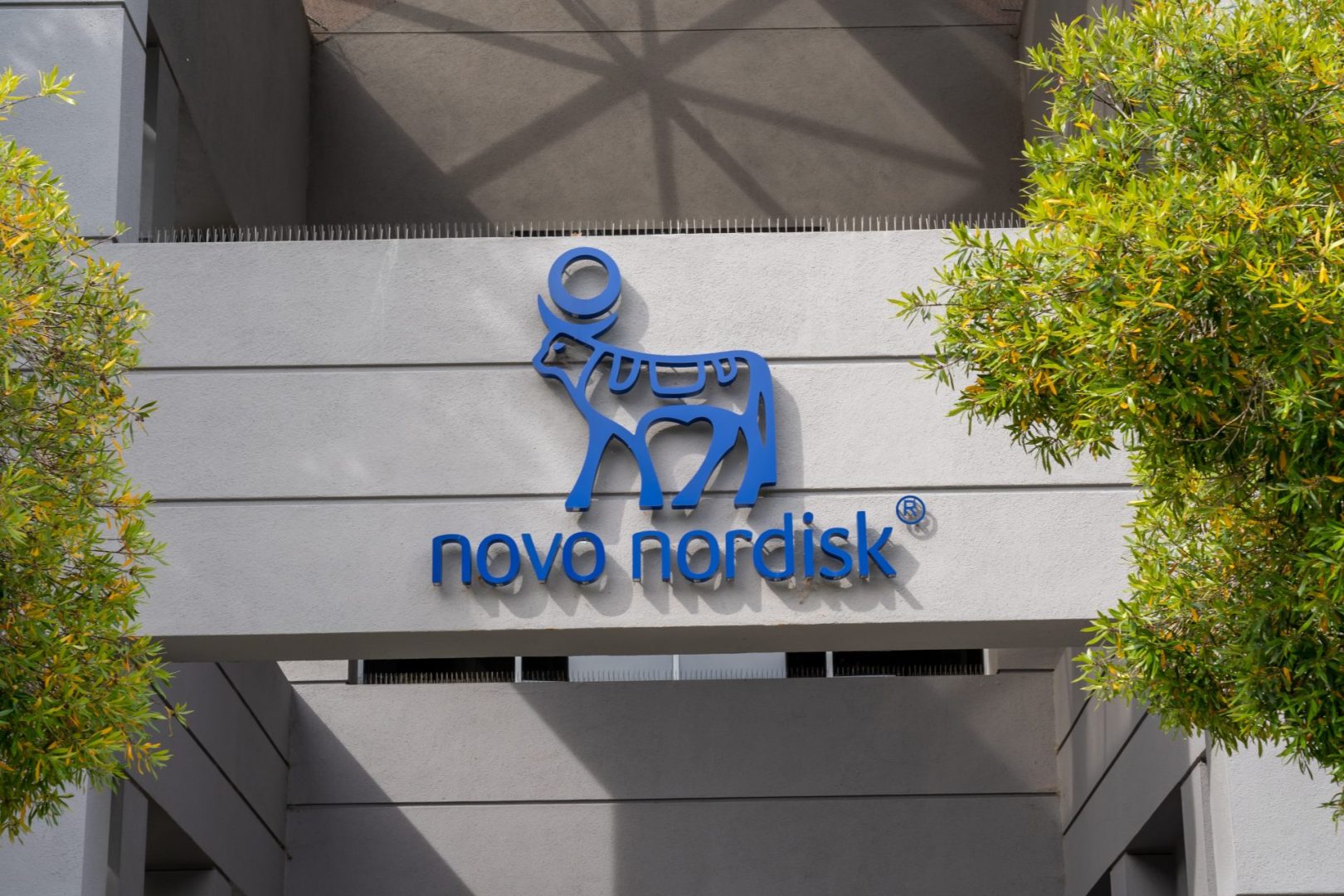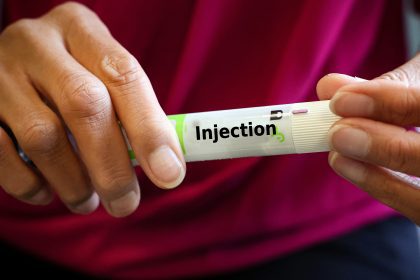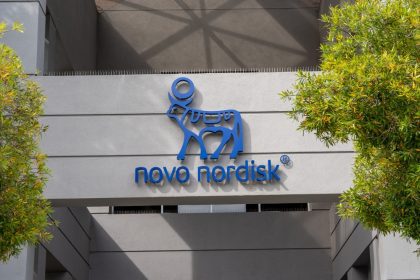Novo Nordisk experienced a turbulent trading session on Monday, with shares plummeting 5.6% by mid-afternoon as investors reacted negatively to a combination of partnership troubles and clinical trial disappointments. The dramatic stock decline occurred while broader market indexes posted solid gains, with both the S&P 500 and Nasdaq Composite climbing 0.7% during the same trading period.
The Danish pharmaceutical powerhouse, known for its dominant position in the lucrative weight-loss drug market, faced multiple challenges that spooked investors and triggered significant selling pressure. The company’s stock performance stood in stark contrast to the overall market sentiment, highlighting specific concerns about Novo Nordisk’s business operations and future growth prospects.
The convergence of partnership disputes and clinical trial results created a perfect storm for the pharmaceutical giant, demonstrating how quickly investor confidence can erode when multiple negative factors align. Monday’s trading activity reflected broader concerns about the competitive landscape in the obesity treatment sector and the challenges facing even established market leaders.
Partnership termination rocks telehealth sector
The pharmaceutical company announced the immediate termination of its partnership with Hims & Hers Health, a popular telehealth provider that had been distributing Novo Nordisk‘s blockbuster weight-loss medication Wegovy through its digital platform. The partnership dissolution came with serious allegations that sent shockwaves through both the pharmaceutical and telehealth industries.
Novo Nordisk accused Hims & Hers of violating federal regulations by engaging in mass sales of compounded drugs while falsely claiming these products were personalized treatments. The Danish company alleged that its former partner had been producing unauthorized versions of weight-loss medications using Chinese suppliers that never received FDA approval for pharmaceutical manufacturing.
The accusations paint a picture of regulatory violations that could have serious implications for patient safety and drug quality control. Compounded medications are typically reserved for specific patient needs and must meet strict personalization requirements, making mass production of such drugs a significant regulatory violation.
The partnership termination eliminates a significant distribution channel for Novo Nordisk’s weight-loss products while potentially exposing Hims & Hers to regulatory scrutiny and legal consequences. The dispute highlights ongoing challenges in the rapidly expanding telehealth sector, where traditional pharmaceutical distribution models are being disrupted by digital platforms.
Clinical trial results fall short of expectations
Adding to investor concerns, Novo Nordisk released disappointing results from clinical trials evaluating CagriSema, an experimental obesity treatment that represents a key component of the company’s future growth strategy. The trial data showed patients achieving an average weight loss of 22.7% of their body mass over 68 weeks of treatment.
While a weight loss of nearly 23% represents a significant clinical achievement that would benefit many patients struggling with chronic obesity, the results fell short of the company’s ambitious target of 25% weight reduction. This seemingly small gap between actual and expected results had outsized impact on investor sentiment and stock performance.
The disappointment reflects the high expectations surrounding next-generation obesity treatments and the intense competition driving pharmaceutical companies to achieve ever-higher efficacy standards. Investors have become accustomed to breakthrough results that significantly exceed existing treatment options, making even modest shortfalls cause for concern.
The trial results also highlight the challenges facing pharmaceutical companies as they attempt to develop increasingly effective obesity treatments while maintaining acceptable safety profiles. Each percentage point of additional weight loss becomes progressively more difficult to achieve, requiring innovative approaches and potentially higher risks.
Weight-loss drug market intensifies competition
The obesity treatment sector has emerged as one of the most lucrative areas in modern pharmaceuticals, with multiple companies vying for market share in a rapidly expanding market. Novo Nordisk has established itself as a leader in this space with Wegovy and related products, but faces increasing pressure from competitors developing their own breakthrough treatments.
Eli Lilly has emerged as Novo Nordisk’s primary competitor in the obesity treatment market, with clinical trials and market performance that have impressed investors and healthcare providers. The competitive dynamics between these pharmaceutical giants have created a race to develop the most effective and convenient obesity treatments available.
The market opportunity for effective obesity treatments continues to expand as healthcare systems worldwide grapple with rising obesity rates and associated health complications. Successful obesity medications can generate billions in annual revenue while addressing a significant unmet medical need affecting millions of patients globally.
However, the intense competition has also raised the bar for clinical performance, making it increasingly difficult for companies to achieve the breakthrough results that drive stock prices and market valuations. Investors now expect each new obesity treatment to significantly outperform existing options, creating pressure for pharmaceutical companies to achieve ever-higher standards.
Regulatory challenges reshape industry landscape
The dispute with Hims & Hers highlights broader regulatory challenges facing the pharmaceutical industry as digital health platforms reshape traditional drug distribution models. Telehealth companies have rapidly expanded their role in medication delivery, particularly for treatments like weight-loss drugs that benefit from ongoing patient monitoring and support.
However, the rapid growth of telehealth services has created regulatory gray areas where traditional pharmaceutical oversight may not adequately address new distribution models. The allegations against Hims & Hers suggest that some telehealth providers may have pushed regulatory boundaries in pursuit of market share and revenue growth.
Federal regulators are likely to increase scrutiny of telehealth companies and their pharmaceutical partnerships following high-profile disputes like the Novo Nordisk situation. Enhanced oversight could slow the growth of digital health platforms while ensuring better compliance with existing drug safety and distribution regulations.
The regulatory environment for obesity treatments is particularly complex because these medications often require long-term use and careful patient monitoring. Telehealth platforms must balance convenient access with appropriate medical supervision, creating operational challenges that may have contributed to the current dispute.
Market reaction reflects investor uncertainty
Monday’s sharp stock decline demonstrates how quickly investor sentiment can shift when multiple negative factors converge for a single company. The combination of partnership troubles and clinical disappointments created uncertainty about Novo Nordisk’s near-term growth prospects and competitive positioning.
The stock’s underperformance relative to broader market gains suggests that investors are specifically concerned about issues affecting Novo Nordisk rather than general market conditions. This targeted selling pressure indicates that the company’s specific challenges are driving the negative reaction rather than broader economic or sector-wide concerns.
Trading volume and price volatility on Monday reflected the significance of the developments and the level of investor concern about their implications. The magnitude of the stock decline suggests that investors view both the partnership termination and clinical trial results as material negative developments for the company’s future performance.
The market reaction also reflects the high expectations surrounding pharmaceutical companies in the obesity treatment sector, where investors have become accustomed to exceptional growth and breakthrough clinical results. Any signs of competitive pressure or execution challenges can trigger significant selling pressure in this high-expectation environment.
Strategic implications for pharmaceutical giant
The convergence of partnership disputes and clinical disappointments creates strategic challenges for Novo Nordisk as it seeks to maintain its leadership position in the obesity treatment market. The company must address distribution challenges while continuing to develop next-generation treatments that meet increasingly high efficacy standards.
The termination of the Hims & Hers partnership eliminates a significant distribution channel that had been helping Novo Nordisk reach patients through convenient digital platforms. The company will need to identify alternative distribution strategies that provide similar patient access while maintaining appropriate regulatory compliance.
The CagriSema trial results, while disappointing relative to targets, still represent a potentially valuable treatment option that could contribute to the company’s future growth. However, the results may require revised expectations about the drug’s market potential and competitive positioning relative to treatments from rival companies.
Looking forward, Novo Nordisk faces the challenge of maintaining investor confidence while navigating an increasingly competitive and regulated market environment. The company’s ability to address current challenges while continuing to innovate will determine its success in the rapidly evolving obesity treatment sector.
Industry outlook remains promising despite setbacks
Despite Monday’s disappointing developments, the long-term outlook for the obesity treatment market remains highly attractive due to growing patient populations and increasing recognition of obesity as a serious medical condition requiring pharmaceutical intervention. The market opportunity continues to expand globally as healthcare systems invest in comprehensive obesity treatment programs.
Novo Nordisk’s established market position and extensive research pipeline provide a strong foundation for continued growth, even as the company faces near-term challenges and competitive pressures. The pharmaceutical giant’s experience in metabolic disorders and proven ability to bring effective treatments to market suggest that current setbacks may prove temporary.
The intense competition driving the sector forward ultimately benefits patients by accelerating the development of more effective and convenient treatment options. While individual companies may face challenges and disappointments, the overall pace of innovation in obesity treatments continues to accelerate.
Monday’s stock decline reflects specific challenges facing Novo Nordisk rather than fundamental problems with the obesity treatment market or the company’s long-term prospects. Investors will be watching closely to see how the company addresses current issues while maintaining its competitive position in this lucrative and rapidly growing sector.














